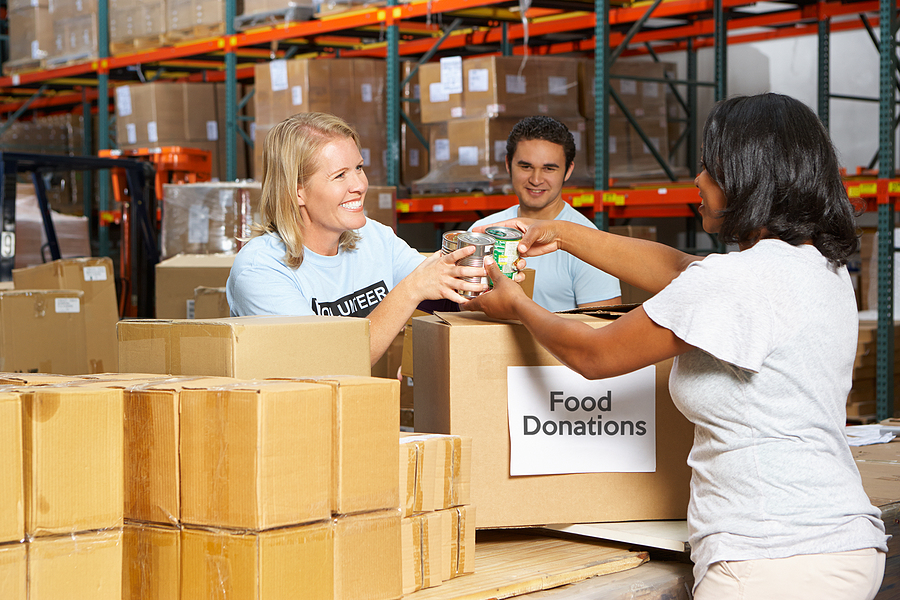A recent New York State Department of Health report finds that 1 in 4 adults statewide lacks reliable access to sufficient and nutritious food. Rethink Food is stepping up to the plate to help: In 2023 alone, Rethink Food says it doled out nearly 9 million delicious dishes to those in need.
The New York-based nonprofit, which also has a Miami operation, is offering a fresh, solutions-based plan for everyone to have the opportunity to eat culturally enriched food by partnering with local restaurants and food purveyors to gather surplus food and ingredients. More than 91% of these business pairings are women- or minority-owned or led. Some of the meals are directly made by restaurants, and a good portion of the donated ingredients are used by chefs in Rethink Food’s commissary kitchen in New York City.
Economic downturns, job losses, and rising living costs have led to more people relying on food banks. There’s also the stumbling block of providing not just food, but nutritious food. Often, food banks have to rely on nonperishable items, which may not always meet the nutritional needs of those they serve.
Recognizing these complications, Rethink Food has a totally unique approach. Its model is based on three key strategies. First, it partners with local restaurants, which helps provide nutritious meals while supporting neighborhood businesses.
Second, it embeds itself in the community where it gives back. In NYC, where the nonprofit is headquartered, it churns out piping hot meals made from repurposed food from its commissary kitchen. Then, Rethink Food rolls up its sleeves and places the warm meals into outstretched hands.
Third, sustainability is the heart and soul of Rethink Food’s philosophy. By using surplus food, it’s reducing food waste, which is a significant contributor to greenhouse gas emissions. Rethink Food’s 2023 year-end report showed that the organization rescued more than 685,000 pounds of food and saved 15,770 gallons of water.
“Our growing network of partners across the food ecosystem — from local restaurants, corporate kitchens, and food producers — plays a critical r ole in building a more sustainable food system,” it states on rethinkfood.org.
Ken Baker, Rethink Food’s culinary director, is proud of the work they’re doing to feed people in need.
“We’re not just opening cans, or bags, or giving people certain quantities of food and saying, ‘Oh, you’re hungry, you should take anything,’” Baker emphasized. “No. It’s food paired with compassion, cultural relevancy, and most importantly, dignity.”
Unfortunately, stories have popped up throughout New York City, unveiling an overwhelming demand at soup kitchens and people in need expressing concern over receiving spoiled food .
“Every single day, I have migrants walking into my office with the food to show us rotten food, spoiled food,” City Council member Julie Won told Fox 5 in New York.
Rethink Food doesn’t have that problem. The meticulous organization goes out of its way to provide the opposite dining experience.
LaToya M. Meaders and Chef Femi Rodney Frazer are Rethink Food partners and the founders of Collective Fare, a food and hospitality business in the Big Apple.
“It’s a way for us to help people understand where they come from,” Meaders said on why teaming up with Rethink Food made sense. “And also to show people that all of our food is connected. Every single one of us, I don’t care what race, creed, color, what country you come from, through food, there are basic elements of this life that we all share.”
Rethink Food has been making a positive impact in the food-challenged
“Food is just such a powerful thing: Food touches everyone,” Rethink Food co-founder Daniel Humm said. “As we started this work, it just brought a lot of joy and happiness, and in the morning, when I get up, I know that the work really matters.”
Food banks have long been an essential part of district support systems. However, the recent influx of more than new immigrants seeking asylum in NYC over the past 18 months has been an impediment.
Spectrum News NY 1 has been filming a series called Crossing Borders: Inside the Immigrant Crisis to take viewers inside the heart of the issue.
“Every d ay, more immigrants and asylum seekers enter New York City,” the video shared. “And every day, hundreds of volunteers greet them, offering food, clothing, and open arms.”
Rethink Food’s 2023 impact report points out that organizations citywide have seen a spike in the need for food. “[It’s] stretching their resources significantly — some seeing a 90% increase in first-timers,” the report added.
The Impact of Rethink Food and Future Prospects
The impact of Rethink Food’s approach has been significant since it began its mission in 2017 .
While food banks continue to face obstacles, Rethink Food is pitching in by paving the way with innovative solutions to feed hungry folks and doing so in a way that supports entire communities and the environment.
Rethink Food’s 2023 year-end report highlights that, during the seven years it’s been in operation, over $85 million has been allocated to support more than 165 restaurants and food enterprises, resulting in the provision of over 20 million meals to upwards of 237 community collaborators. Additionally, it’s led to the conservation of 5.7 million pounds of CO2 emissions.
“Through our model of leveraging local restaurants and [minority- and/or women-owned businesses], we can double jobs in our local communities,” Rethink Food’s report says. “[We can] increase tax revenue by 25% and dollars spent loc ally by 33%, all while bringing thoughtfulness, passion, and hospitality to the food service we provide, which has historically been left out of emergency and supplemental food programs.”
Image Source: BigStockPhoto.com (Licensed)
Related Categories: Food, Reviews








